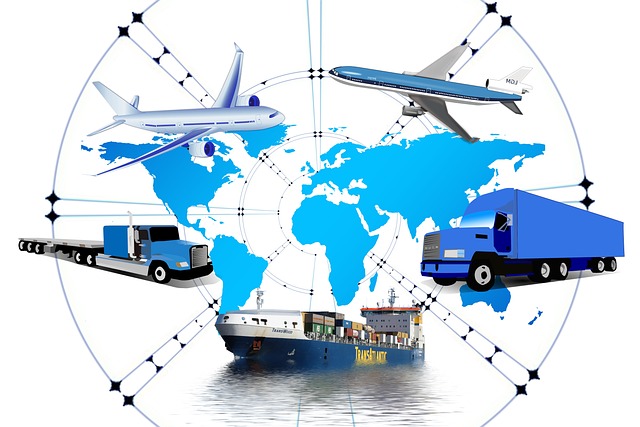
-
The Philippines remained in 18th place on the world’s 50 emerging logistics markets for the third consecutive year
-
In the latest edition of the Agility Emerging Markets Logistics Index, the country kept its ranking even though its overall score declined from 5.18 in 2023 to 5.06 for 2024
-
The country again performed strongest in digital readiness although its score and rank dropped respectively to 5.50 and 12th place
-
The Philippines improved in domestic logistics opportunities, maintained the same rank in international logistics opportunities, and dropped further in business fundamentals
-
In the overall ranking, the top seven emerging markets remain the same, led by China and India, and followed by the United Arab Emirates, Malaysia, Indonesia, Saudi Arabia, and Qatar
-
Half of the 830 industry professionals surveyed for the 2024 index expect a global recession in the coming year – down from nearly 70% a year ago
The Philippines remained at 18th place in the world’s 50 emerging logistics markets for the third consecutive year.
In the latest edition of the Agility Emerging Markets Logistics Index, the country maintained its ranking even though its overall score declined from 5.18 in 2023 to 5.06 for 2024.
The annual index—conducted by global logistics industry research and analysis service provider Transport Intelligence and global logistics company Agility—ranks countries for overall competitiveness based on their logistics strengths, business climates and digital readiness — factors that make them attractive to logistics providers, freight forwarders, air and ocean carriers, distributors and investors.
It examines key areas for logistics market development, namely, domestic logistics opportunities, international logistics opportunities, business fundamentals; and digital readiness.
For this year’s index, 830 logistics industry professionals were surveyed.
As in the past year, the Philippines performed strongest in digital readiness, albeit its score of 5.50 in 2024 is a decline from 5.99 in 2023. This resulted in the country dropping to 12th place this year from 9th.
Digital readiness measures the potential and progress of an emerging market in becoming a digitally led, skills-rich, innovation-oriented and sustainable economy for the future.
The Philippines kept its 13th rank in international logistics opportunities, which measures internal and external demand for trade intensive logistics services and the capacity of individual emerging markets to facilitate cross-border logistics operations. The country scored 5.22 this year, a slight downgrade from 5.28 in 2023.
For domestic logistics opportunities, the Philippines improved in ranking to 17th from 18th, with 5.06 from 5.02 previously. Domestic opportunities measure the performance of each emerging market and its potential to sustain and develop domestic demand that requires competitive logistics markets.
On business fundamentals, which measures the openness, robustness, fairness and strength of each emerging market’s business environment, rule of law and market independence, the Philippines further dropped to 36th place from 33rd with a score of 4.23 from 4.31 in 2022.
In the overall ranking, the top seven emerging logistics markets remained the same, led by China and India, and followed by the United Arab Emirates, Malaysia, Indonesia, Saudi Arabia, and Qatar.
Vietnam and Thailand switched places, with the former moving up to eight place and the latter down to 10th. Mexico remained in ninth place.
Three of the four countries offering the best emerging market business conditions are situated in the Arabian Gulf: the UAE (first), Saudi Arabia (third), and Qatar (fourth). Malaysia (second) and Jordan (fifth) both moved up in the business fundamentals rankings.
China and India were tops for domestic and international logistics. In digital readiness, China jumped three spots to first place, followed by the UAE, Malaysia and Qatar. India fell from the top spot a year ago to fifth this year.
Outside of the top 10, many of the biggest swings in year-to-year rankings involved countries experiencing conflict, facing international economic sanctions, or suffering from chronic economic instability. Among them were Ukraine, Russia, Iran, Ethiopia, Argentina, Lebanon, and Tunisia.
Half of the 830 industry professionals surveyed for the 2024 index expect a global recession in the coming year – down from nearly 70% a year ago.
More than 63% of respondents say their companies continue overhauling supply chains by spreading production to multiple locations or relocating it to home markets and nearby countries.
China, the world’s leading producer, stands to be most affected: 37.4% of industry professionals say they plan to move production/sourcing out of China or reduce investment there.
“Shippers and carriers are struggling to minimize supply chain risk and find new growth opportunities. Inflation and recession risks have eased, but the industry is still living with the aftershocks of the COVID pandemic. At the same time, businesses are worried about geopolitics — troubled trade relations between China and the U.S. and Europe, and the thicket of sanctions against a growing number of countries,” Agility vice chairman Tarek Sultan said.
Shipping and logistics costs that soared during the COVID-19 pandemic and its aftermath are still climbing but at a slower rate, the survey found. One way shippers expect to cope is by increasing use of digital freight forwarding from 37.8% today to 52% in five years.
Meantime, the industry is gearing up for a surge in Africa investment. Nearly 62% of professionals say their companies are planning additional or first-time investments in Africa versus only about 7% exiting or scaling back there. – Roumina Pablo
READ: PH at 18th spot among 50 most promising emerging logistics markets in 2023




